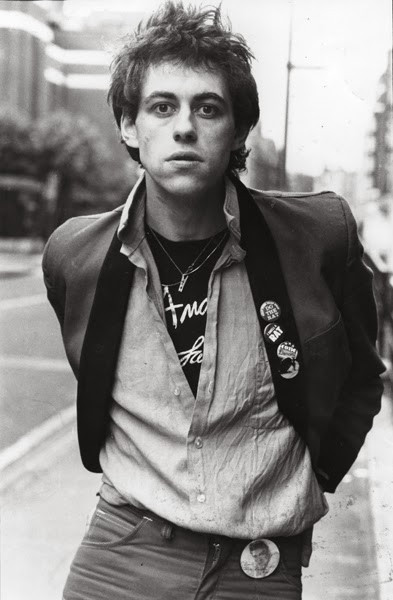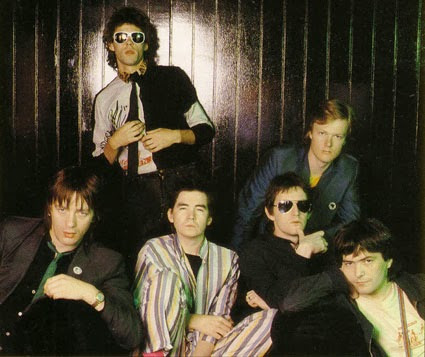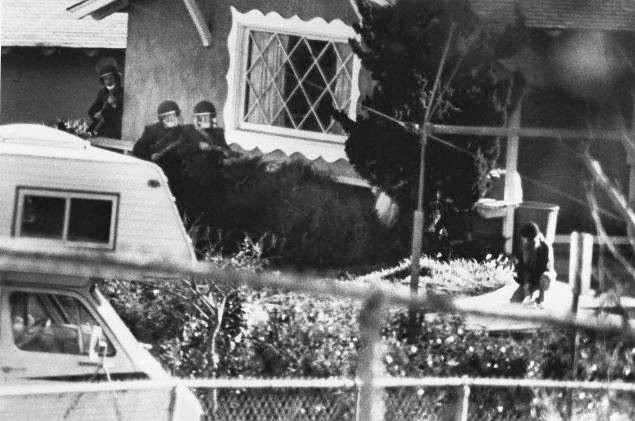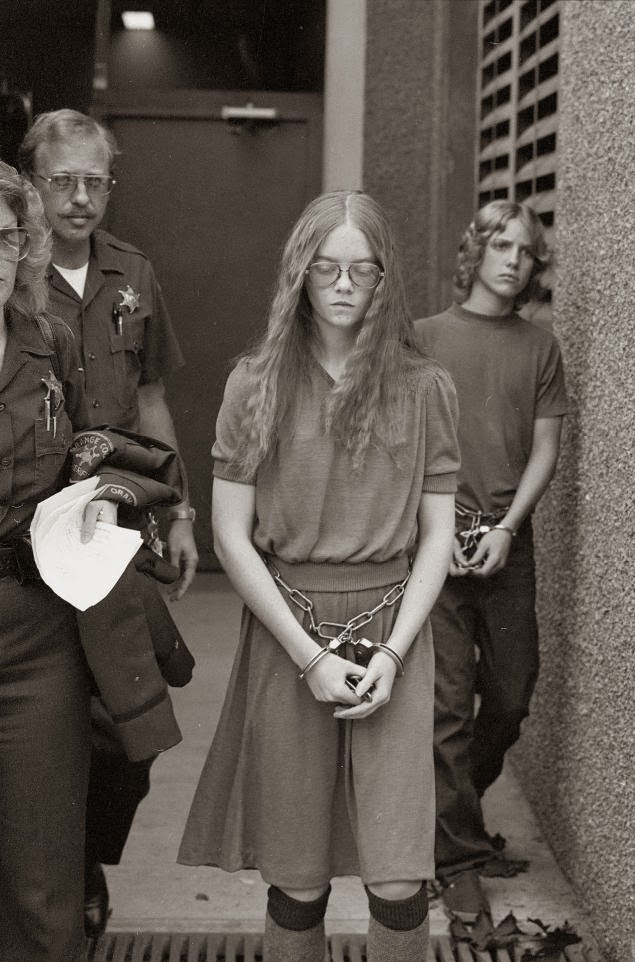The song “I Don’t Like Mondays” by The Boomtown Rats, fronted by Bob Geldof, is instantly recognizable and undeniably catchy. But beneath its infectious chorus lies a darker, more complex story inspired by a tragic real-life event. This article delves into the depths of this iconic song, exploring its origins, lyrical interpretation, and enduring resonance, making it a comprehensive guide for anyone seeking to understand the layers within “I Don’t Like Mondays.”

Bob Geldof in a pensive moment, capturing the complex emotions behind “I Don’t Like Mondays”.
While many might relate to the simple sentiment of “I don’t like Mondays,” often associating it with the start-of-the-week blues, the song’s true meaning is far removed from mere weekday aversion. It’s a song born from a shocking act of violence, attempting to grapple with the senselessness of tragedy and the disturbing motivations behind it. “I Don’t Like Mondays” isn’t just a pop song; it’s a commentary on modern alienation and the unsettling nature of inexplicable acts.
This exploration will unpack the various facets of “I Don’t Like Mondays,” moving beyond the surface-level interpretation to reveal the profound themes embedded within. We will investigate the real-life incident that sparked the song, analyze its lyrical content, and discuss the controversy it ignited, ultimately understanding why this song, despite its dark inspiration, continues to captivate audiences decades later.
The Real-Life Tragedy Behind the Tune: Brenda Ann Spencer and San Carlos
To truly understand “I Don’t Like Mondays,” it’s crucial to confront the grim reality that served as its muse. The song is rooted in the 1979 Cleveland Elementary School shooting in San Carlos, San Diego, perpetrated by 16-year-old Brenda Ann Spencer. On a Monday morning, Spencer opened fire from her home across the street from the school, wounding eight children and a police officer, and fatally shooting the school principal, Burton Wragg, and custodian, Michael Suchar, who were attempting to protect the students.

The Boomtown Rats, the band behind “I Don’t Like Mondays”, captured the raw energy of the new wave era.
The chilling detail that cemented this tragedy in musical history was Spencer’s reported explanation for her actions. When asked why she committed such a horrific act, she reportedly stated, “I don’t like Mondays. This livens up the day.” This quote, delivered with shocking nonchalance, became the haunting core of The Boomtown Rats’ hit song.
Bob Geldof encountered this news report while at a university radio station in Atlanta. The sheer senselessness of the crime, coupled with Spencer’s disturbingly casual motive, deeply impacted him. He channeled this shock and confusion into songwriting, aiming to capture the inexplicable nature of such violence. The result was “I Don’t Like Mondays,” a song that, while catchy, carries the weight of this grim origin story.
Deconstructing the Lyrics: Senselessness and Adolescent Nihilism
The lyrics of “I Don’t Like Mondays” are not a straightforward narrative of the shooting. Instead, they adopt a more thematic approach, reflecting the confusion and lack of rational explanation surrounding the event. The repeated refrain, “Tell me why! I don’t like Mondays!” directly quotes Spencer’s infamous words, highlighting the disturbing lack of motive and the frustrating search for meaning in a senseless act.
The lines “Silicone chip inside her head switched to overload” suggest a detachment from reality, hinting at a possible mental state or societal influence that could lead to such actions. This line doesn’t offer an excuse, but rather points to the complexity of understanding the motivations behind such crimes. The phrase “shoot the whole day down” further emphasizes the nihilistic sentiment, conveying a desire to destroy and disrupt without clear purpose.
The song captures a sense of adolescent alienation and frustration. The feeling of “not liking Mondays” becomes a metaphor for a broader discontent, a feeling of being trapped in a meaningless routine, which, in Spencer’s twisted interpretation, she sought to escape through violence. While the song doesn’t condone her actions, it taps into a vein of youthful angst and the search for meaning in a world that often feels chaotic and arbitrary.
Controversy and Public Reaction: Navigating Sensitivity
“I Don’t Like Mondays” was released in late 1979 and quickly became a global hit. However, its success was not without controversy. Understandably, the song was met with strong reactions, particularly in San Diego, the community directly affected by the shooting. Radio stations in the area refused to play the song, and Spencer’s family reportedly considered legal action, viewing the song as an exploitation of their tragedy.

Brenda Ann Spencer surrendering to police, a stark image that embodies the tragic event behind the song.
Despite the controversy and limited airplay in some regions, the song resonated with a wider audience. Its catchy melody and relatable (albeit misinterpreted) refrain made it accessible, while the underlying darkness added a layer of intrigue. For many, “I Don’t Like Mondays” became an anthem of teenage rebellion and frustration, divorced from its specific tragic origins.
Bob Geldof himself has acknowledged the sensitive nature of the song, stating it was not intended to exploit tragedy but to grapple with the senselessness of it. He aimed to create a “senseless song” to reflect a “senseless act,” hoping to provoke thought and discussion about violence and its roots.
Enduring Legacy and Continued Relevance
Decades later, “I Don’t Like Mondays” remains a staple in The Boomtown Rats’ performances and Bob Geldof’s solo sets. It has been featured in various contexts, from Live Aid in 1985 to lifetime achievement award ceremonies, demonstrating its enduring place in popular culture.
The song’s continued relevance can be attributed to its multi-layered appeal. On the surface, it’s a catchy new wave track with a memorable chorus. But for those who delve deeper, it offers a poignant, if unsettling, reflection on violence, alienation, and the search for meaning in a world that often defies understanding. The song’s ambiguity allows for multiple interpretations, ensuring its resonance with different generations.
While the “I don’t like Mondays” sentiment can be superficially linked to everyday workweek blues, the song’s true power lies in its ability to confront uncomfortable truths about human nature and the inexplicable nature of violence. It serves as a stark reminder of the real tragedy that inspired it, prompting listeners to consider the deeper, darker currents that can underlie seemingly simple statements. “I Don’t Like Mondays” is more than just a song; it’s a cultural artifact that continues to provoke, disturb, and ultimately, make us think.

Brenda Ann Spencer in a later image, a haunting reminder of the person behind the infamous quote.
